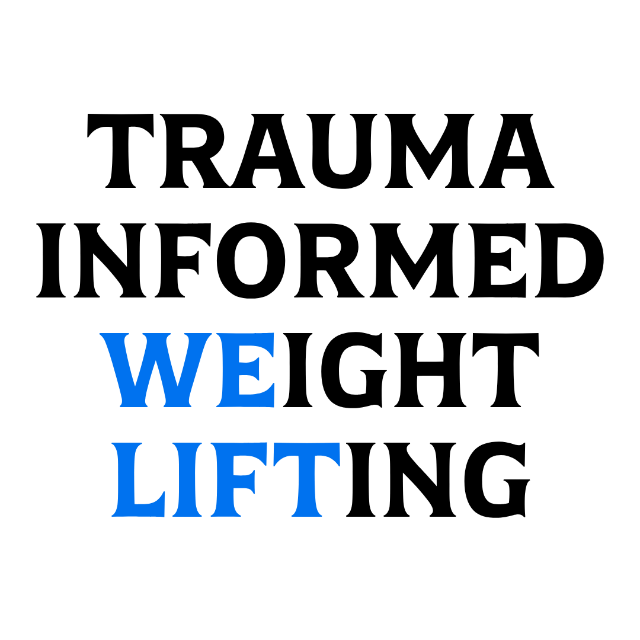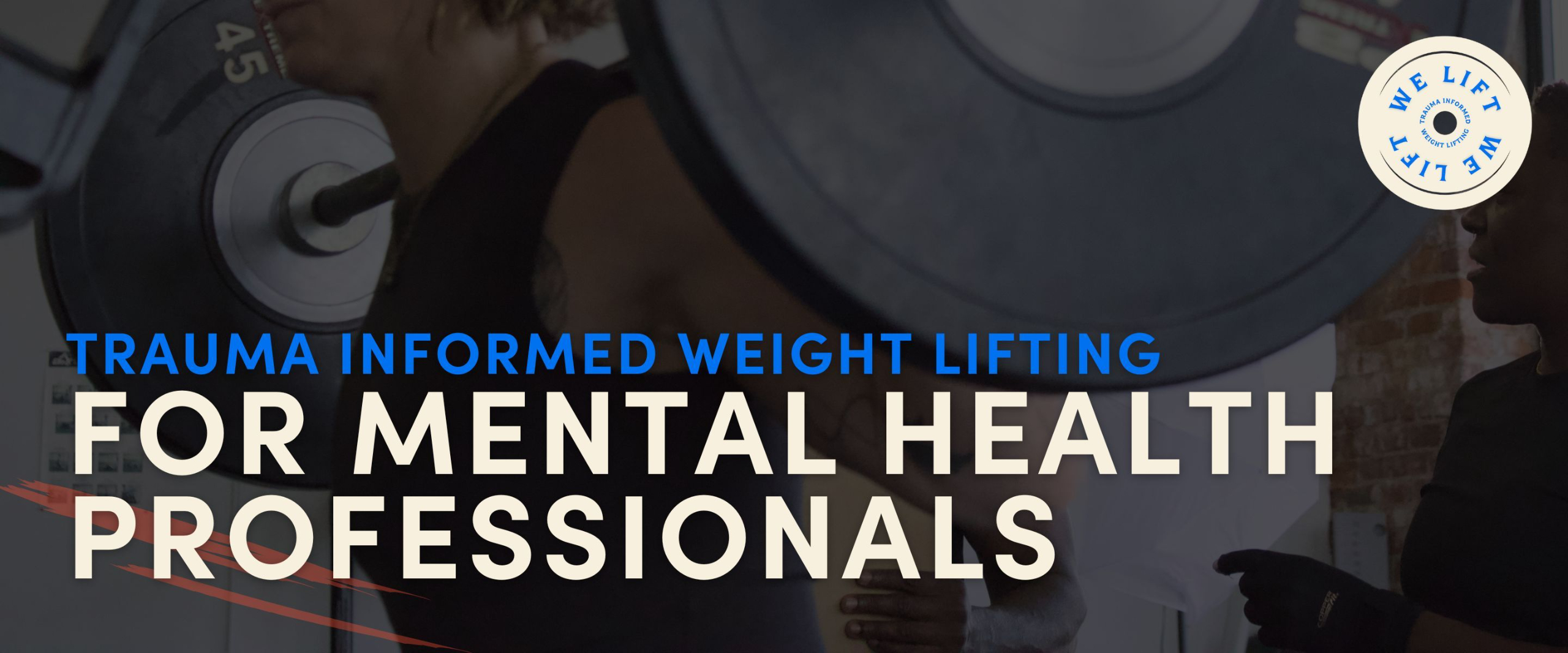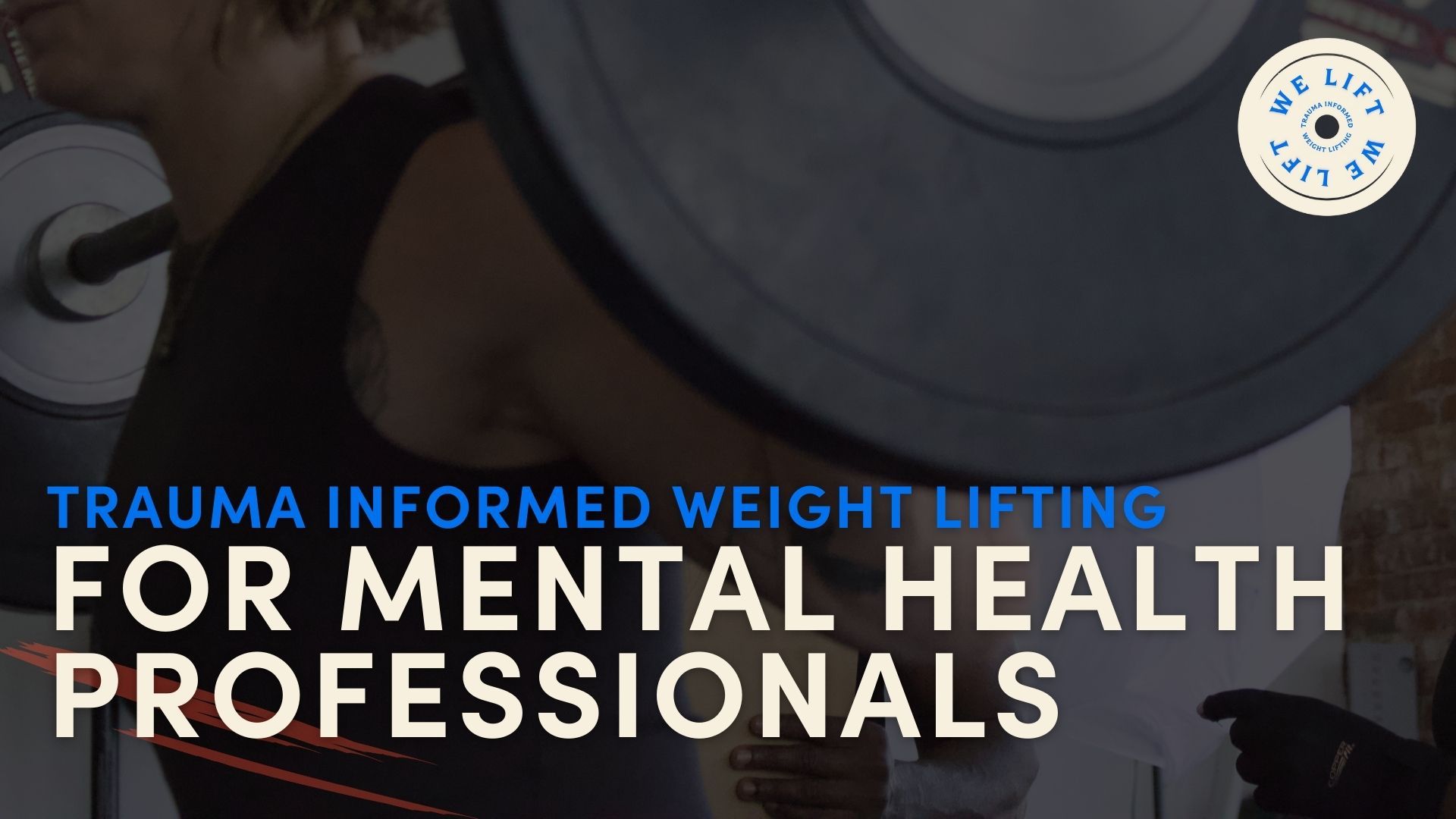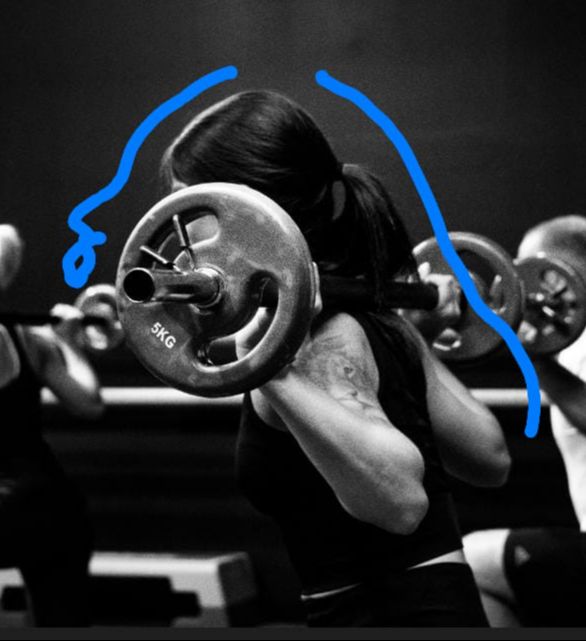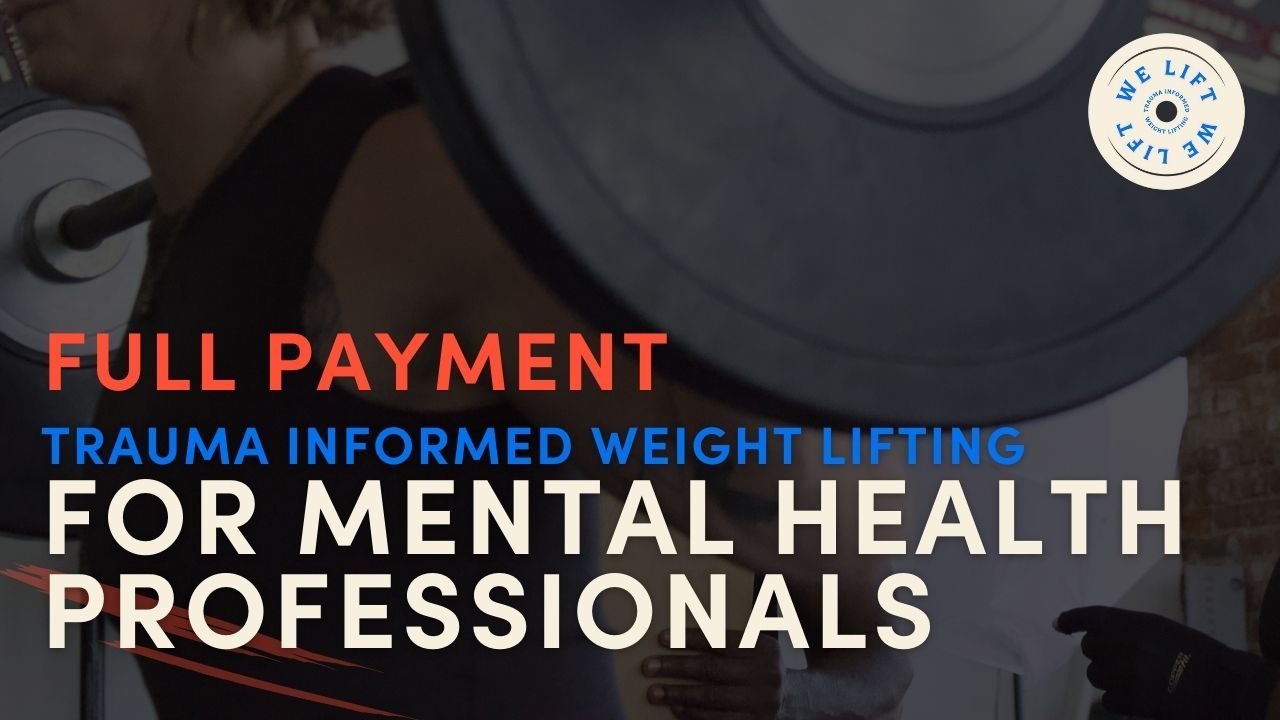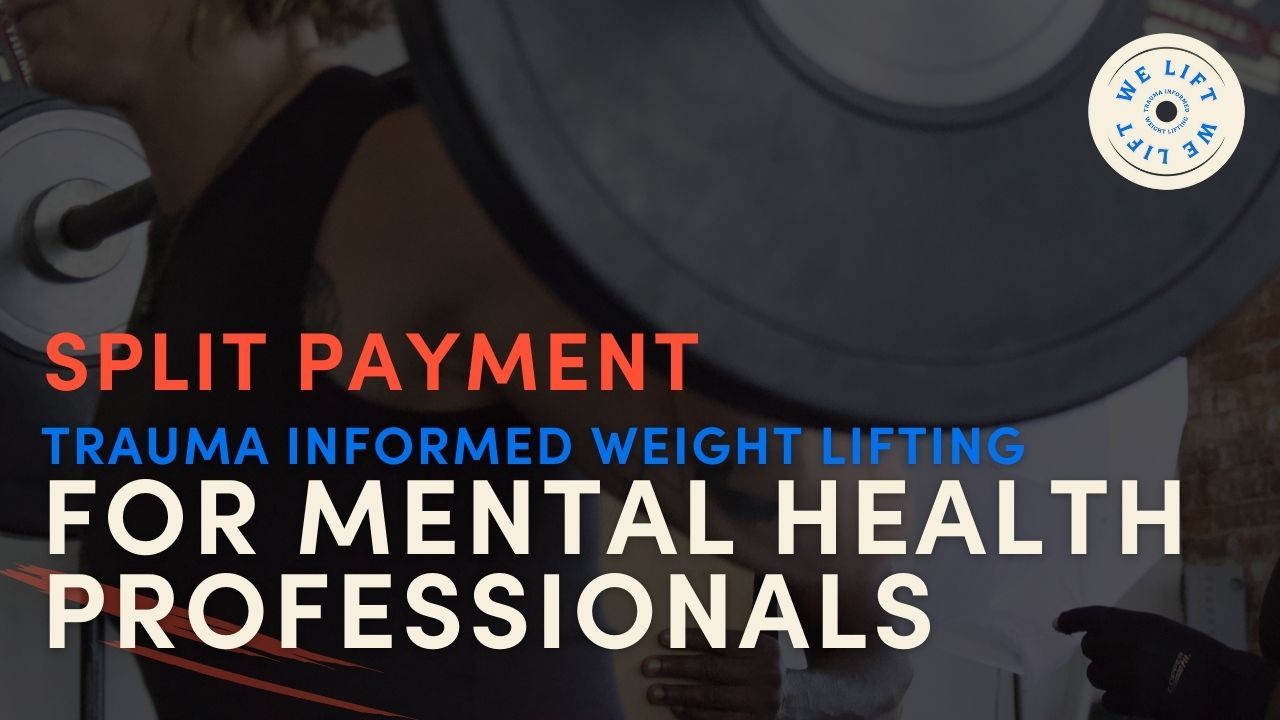ABOUT THE PROGRAM
2 Days | 5 Hours | 100% Online
December 9th & 11th, 2025
Strength is more than muscle. It’s connection, regulation, and the body’s way of remembering what’s possible - working with and through trauma.
This two-day training brings mental health providers into the practice of Trauma Informed Weight Lifting —a framework that blends trauma science with strength training to create new pathways for recovery.
You’ll explore how embodiment, movement, and resilience intersect, and how weight lifting opens other avenues of support for trauma-impacted clients.
We combine didactics, case studies, discussion, and reflection to give you practical tools you can use right away, in both clinical and community settings.
You’ll leave with language, strategies, and confidence to collaborate with clients and coaches, while honoring scope, safety, and sustainability.
Already trained in TIWL? This program incorporates new content, fresh case studies, and updated practices to take your work even further.
TIWL Certificate Holders receive a discount!
Training Dates
& Times
Please clear your calendar of any scheduling conflicts prior to registering, unexpected circumstances aside.
The live session will be recorded. All course content is available for 60 days from the date of the first session.
WHAT YOU'LL LEARN
- Define the principles of Trauma Informed Weight Lifting and articulate their relevance for clinical practice.
- Describe the relationship between trauma, embodiment, and strength training, including neurobiological, psychological, and social dimensions.
- Identify common barriers and opportunities for clients engaging in fitness spaces with attention to power, identity, and equity.
- Apply trauma-informed principles to case examples of clients seeking to integrate physical strength practices into their healing.
- Develop strategies for collaboration between mental health providers, fitness professionals, and clients in support of embodied trauma recovery.
- Understand critical considerations around scope of practice, liability, and the boundaries between clinical and non-clinical roles.

A NOTE ABOUT LEARNING VERSUS HEALING
This program is for professional development and learning. We recognize that although many of us may have experiences of trauma, the time we spend together will not be an intervention for our own individual healing. Talking and learning about trauma, even in the context of a training, can be triggering.
Join us for two days of learning, practice, and connection.
Clients do better when they have more strategies than talking to heal. Trauma lives in the body—and recovery often begins there, too. TIWL helps you bridge the gap, bringing movement and strength into the therapeutic process in ways that are safe, collaborative, and deeply effective.
This isn’t just Continuing Education. It’s a chance to step into the leading edge of embodied mental health care.
Frequently Asked Questions
Who is this training for?
Do I need any prior training in either TIWL, trauma, etc?
How is the program delivered / is it fully remote?
What is the time commitment?
What if I have a scheduling conflict?
Will the live sessions be recorded?
What is the cost of this training / can I pay in installments?
I can't attend this time around. Will you be offering this again?
I'm not sure this is right for me... Do you have other training options?
Stay trauma-informed with our monthly newsletter.
You can unsubscribe at any time. We do not sell your information.
2025©️TRAUMA INFORMED WEIGHT LIFTING | ALL RIGHTS RESERVED
website by hornsteindigital.com
